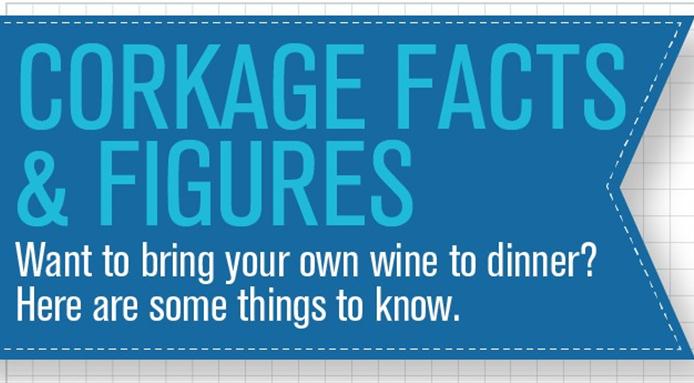
The SYLTBAR brand only works with one family-owned-and-operated vineyard in Italy. This ensures consistent quality control, but it limits the ability to produce mass quantities to distribute all over the world like some brands do. We are not mad about that! In fact, we respect and support our producers in the way they produce smaller quantities of their wine — but they will always be high quality.
We understand that it is difficult to run a successful restaurant and make a profit, especially if you are a smaller, family-owned business. Costs are constantly rising. Many restaurants also prefer to use local and fresh ingredients whenever possible, and that can be costly and time consuming to find the best companies from which to source ingredients and the best wineries to offer wine from. This is one very positive thing about bringing your own — it saves the restaurant time and money to look for you. You can bring your own, pay the corkage fee, and everyone wins!
This varies greatly and depends entirely on the restaurant. The establishment is free to charge whatever they see fit for their corkage fee.
Because of this, you won’t see SYLTBAR on every restaurant menu. Ever notice how a lot of restaurant wine lists have the same wine brands? This is very much a “pay to play” kind of game. It’s all about making money for the restaurants, so they take advantage of the huge discounts they get when they serve the same set of wines. For example, say there is a group of five wine brands from the same distributor. If the restaurant decides to purchase all five wines and put them on their list, it will cost them much less than if they were only to select wine #1, #3 and #5. Many times, the people choosing the wines care more about saving money than they do about the caliber of product they are serving to their customers. In some cases, they may not even go through actual tastings of the wines and simply pick them based on cost.
A corkage fee is primarily charged as a way to offset some of the losses of the alcohol and bar profit. In some cases, however, the restaurant may not even serve alcohol at all, but they do have the legal license that allows guests to BYOB (bring your own bottle) and drink on-site. For these restaurants, the corkage fee goes toward the servers who are opening the bottle and pouring the drinks for the diners.
What is Wine Corkage Fees?
Corkage culture is not new to the United States, bandied about on wine discussion boards and conversation at many wine happy hours or dinners. Many believe bringing their own bottle (BYOB, or in this case BYOW, bringing your own wine) is an inalienable “Wine Lovers Bill of Rights,” akin to American’s right to vote. But what is a wine corkage fees and why and when should you pay it?
If you are lucky enough to live near a restaurant which allows BYOW, the question then becomes to pay the Corkage fee, or not to pay. Here are 5 reasons why we think you should…and a few reasons why you should not bring a bottle of wine and pay a corkage fee.
Wine 101: Corkage Fees & Etiquette
FAQ
What is the purpose of a corkage fee?
Why pay corkage?
What is the average cork fee?
What is the complimentary corkage fee?
Should you pay a corkage fee if you live near a restaurant?
If you are lucky enough to live near a restaurant which allows BYOW, the question then becomes to pay the Corkage fee, or not to pay. Here are 5 reasons why we think you should…and a few reasons why you should not bring a bottle of wine and pay a corkage fee. 1. The restaurant does not carry wine and encourages BYOB.
How much does wine corkage cost?
Many restaurants charge between $10 and $40 for each bottle of wine as corkage. Corkage fees in New York City, for example, average $36 a bottle. Some corkage fees, however, can exceed $100. Generally, the higher the price of a restaurant, the higher the corkage fee.
How much does corkage cost?
Corkage fees vary by restaurant. If you’re planning on bringing more than one bottle, be aware that most restaurants will charge one price for the first bottle, say $25, and more for the second bottle, say $50. Is there a limit on the number of bottles guests can bring?
Are corkage fees rising?
Corkage fees vary by restaurant, city, and state, but recently the price hike in corkage fees has been a point of contention between diners and restaurant owners.
